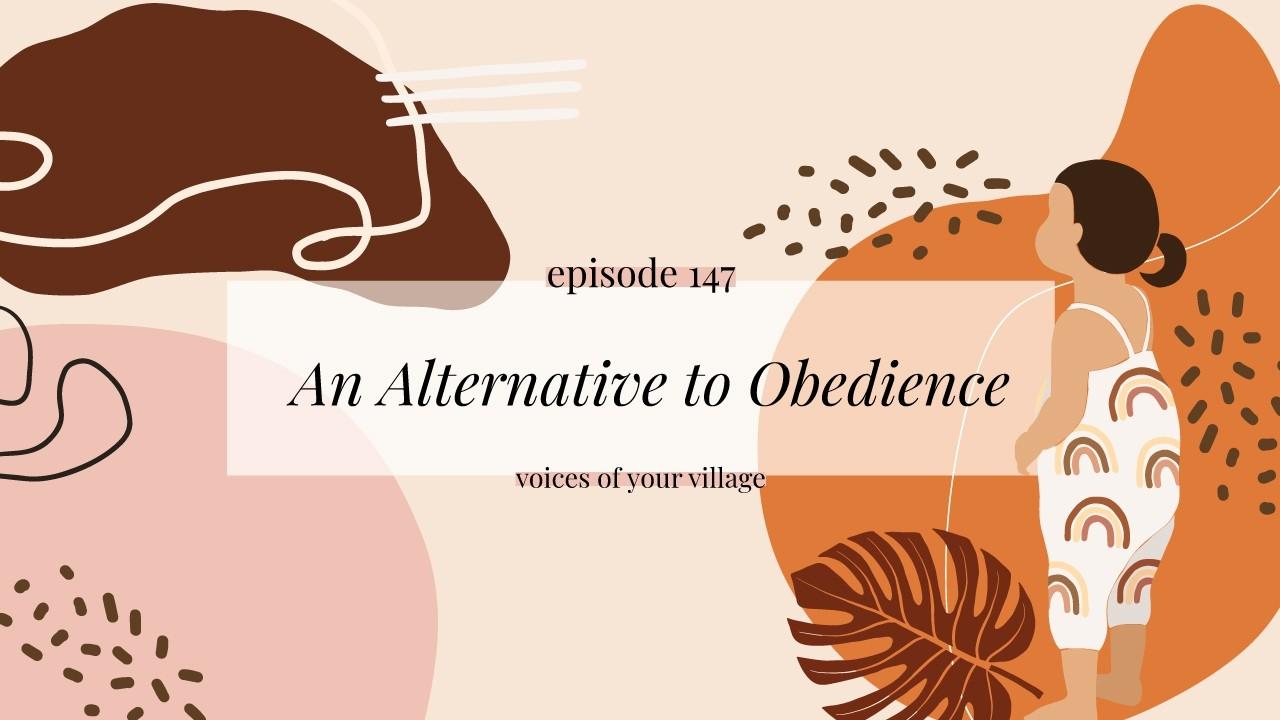An Alternative to Obedience

Hello and welcome to episode 147 of Voices of Your Village! In today’s episode we are diving into an alternative to obedience with Casey Meyers. I could have kept talking to Casey for hours, and after this interview Casey and I actually kept getting nerdy about child development with one another for an additional 45 minutes. In this episode we dive into how we were raised and how our social programming and biases come up for us when we go to respond to kid’s big emotions, and how else we can navigate this outside of the obedience mindset.
This is so hard for so many of us because we are bringing a lot from our own childhood, or we might have certain expectations of kiddos at different ages and stages. I love the framework that Casey lays out in this episode, I feel that it is really digestible. I love hearing about what you are snagging from our gift guide! If you haven’t snagged it yet, head to SeedandSew.org/giftguide and snag your free guide to take you through the holiday season and purchase with intention.
We have a special offer for Mama’s Getaway Weekend coming up soon!
This special offer is only going out to folks on our Mama’s Getaway Waitlist, so head on over to SeedandSew.org/mgw to join! Stay tuned, it is coming on Wednesday, November 25th so keep an eye on your inbox to snag this hot deal! Alright, let’s dive into this week’s episode!
Casey Myers has had a winding path through early childhood and teaching. She has been working with children and family years as a teacher, speech pathologist, and therapist who has always specialized in the birth to five crowd. Casey began to get fed up with some of the social-political aspects of her job in regards to inequities and the healthcare system, so she got her PhD in Curriculum and Instruction with a focus on Early Childhood Studies. Since then, Casey has worked as a teacher educator and taught courses on everything about child development as well as working in The Early Year Center as the research coordinator and studio coordinator.
Casey created a Participation Toolkit for teachers, schools, and families to think critically about what participation means for children in their daily lives. Because many of us have been to school in some form or another, we tend to have a pretty narrow view of what it means to “participate” in something. This usually means you are obedient, compliant, and you adhere to the social expectations based on what others are doing. When really, participation means an individual’s relation to a system as a whole. So, when we think of participation in this new way it opens us up to what participation means for children in a school setting.
“It is helpful to think about what counted as participation for me throughout my life— how it was judged, how I felt about it— those things are really valuable whether you are a teacher or a parent.”
I was so jazzed to hear Casey’s new definition of participation. Once she laid that out for us, she and I dove right in to our own experiences with childhood participation and what obedience meant for us in our own childhoods. I encourage you, my dear listeners, to pause and take a beat to think about what obedience looked like during your own childhood. Because how you experienced obedience when you were young will inform your expectations as you parent your own tiny humans.
After deep diving into our own experience with participation and obedience, Casey laid out some tangible ways that we can instill an inclusive mindset and inclusivity best practices with our tiny humans. From narrating their every day life to keeping kiddos informed about their community, keeping our kiddos included is an ongoing and necessary part of parenting.
To connect with Casey, you can find her at WatershedEarlyYears.com. For those of you who are looking to learn more about moving into parenting or teaching from a participation point of view, you can contact her there for more resources. Thank you so much for joining our village, Casey! I loved getting nerdy with you on the pod.
Another resource that Casey recommends when it comes to parenting and teaching from a children’s rights perspective is a document from the U.N. called the Convention on the Rights of the Child. It was developed by the United Nations as a bill of rights that goes through a children’s rights perspective of what children are entitled to. When we talk of things coming from a “rights perspective” it is this document that we are primarily referring to.
As always, come and find me @Seed.And.Sew on Instagram to keep this conversation going. Which part of this episode brought up the most from your own childhood? Which one of Casey’s actionable tools are you excited to add to your routine? Come let me know! I am always happy to hear from you villagers.
Until next time,
Xoxo
Alyssa
